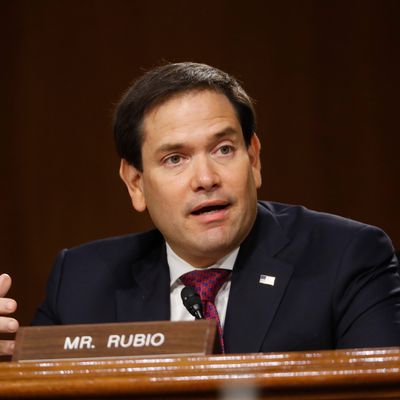
On Wednesday night, President Trump said at a press conference that he would not commit to a peaceful transfer of power in the event that he loses the election. “We’re going to have to see what happens,” he said. “We want to get rid of the ballots, and we’ll have a very peaceful — there won’t be a transfer, frankly. There’ll be a continuation.” It was a not-so-subtle preview of Trump’s probable strategy of refusing to concede any loss, and — particularly if the election is close — waging an all-out legal war that could make Bush v. Gore look like child’s play, possibly shaking American democracy to its foundations. Though it was not the first time Trump has intimated that he won’t go quietly, his remarks came on a day when the outlines of what his strategy to dispute the election might actually look like appeared clearer than ever.
A few Republicans were so shaken by all this that they subtweeted the president.
Without naming Trump, some GOP senators, including Majority Leader Mitch McConnell, Mitt Romney, and Marco Rubio, voiced their support for doing things the old-fashioned way.
Lindsey Graham also chimed in, again without getting into specifics:
A few Republican members of Congress — Liz Cheney Steve Stivers, and John Katko — offered similar reassurances.
Of course, the important question isn’t only whether Republican lawmakers will commit to standard inauguration procedure, but to what extent they will back Trump if and when he challenges the validity of the election results, particularly in the likely event that early results in some states show a “red mirage” — a Republican advantage that will evaporate as more mail-in ballots, which Trump has largely deemed illegitimate, are counted. If Republicans really wanted to calm a jittery public, they’d come out against Trump publicly declaring himself the winner on Election Night based on very partial results.
And the assertion that the system will take time but get it right in the end is a bit rich coming from Rubio in particular. In 2018, as his home state of Florida slowly tabulated ballots in the aftermath of extremely tight midterm elections, the Florida senator publicly accused Democratic counties of siphoning votes from Republicans — the kind of conspiratorial rhetoric that the president seems almost certain to engage in on or after November 3.






























